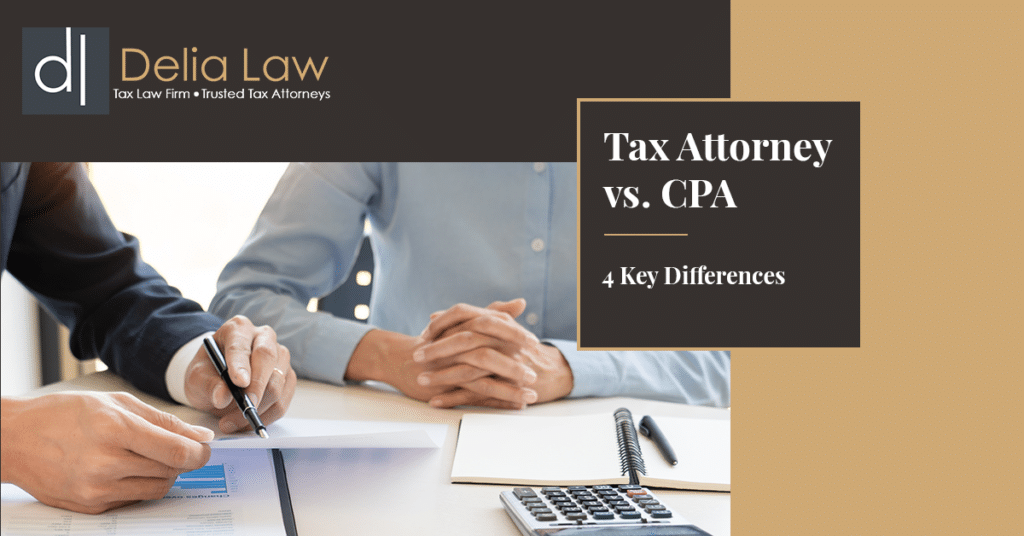When it comes to managing your taxes, you might find yourself asking whether to seek the assistance of a tax attorney or a certified public accountant (CPA). Understanding the difference between tax attorney vs. CPA can help determine which professional best suits your tax needs. Both have unique roles, qualifications, and responsibilities, but their areas of focus and the services they provide can be significantly different.
Educational Background and Licensing
The first significant difference between a tax attorney and a CPA lies in their educational background and licensing requirements. A tax attorney is a legal professional who has completed law school and has passed a state bar examination. This rigorous legal training and a license to practice law allow them to handle complex legal issues surrounding your taxes.
On the other hand, a CPA has an accounting background. To earn the CPA title, an individual must complete 150 hours of education (which often leads to a master’s degree in Accounting or Taxation), pass a stringent CPA examination, and meet experience requirements set by their state board of accountancy. A CPA’s education and training are focused on the precise and detailed work of accounting, auditing, and tax preparation.
Legal Representation and Privileges
When it comes to legal representation, a tax attorney is your go-to professional. If you face legal issues related to taxes, such as a tax dispute or audit by the IRS, only a tax attorney can represent you best with regard to the complexities, procedures and skilled negotiations needed. If the tax issue cannot be resolved with the IRS, only a tax attorney can represent you in Tax Court. They are qualified to provide legal advice, draft legal documents, and make legal arguments on your behalf.
Moreover, the attorney-client privilege protects communications between a tax attorney and a client, ensuring any information disclosed during your discussion remains confidential. CPAs do not share this privilege. If confidentiality is a significant concern in your case, which it should be, hiring a tax attorney is by far the best choice.
Additionally, tax attorneys and their team can prepare tax returns and strategize with an eye on any potential legal disputes. They can also work with your selected CPA or tax return preparer to assist them and you to avoid legal tax issues.
Specialized Tax Planning
Both tax attorneys and CPAs can assist with tax planning, but they each have a distinct focus. A tax attorney typically provides advice on legal tax issues, such as tax dispute resolution, or advice on tax implications of business deals.
Meanwhile, a CPA’s tax planning services generally revolve around financial accounting matters. They can provide advice on the tax consequences of financial decisions, assist in financial planning, and offer strategies to reduce taxable income through legitimate accounting methods. However, more and more, tax attorneys and their teams are becoming the preferred choice over CPA firms as they have many of the CPA functions with legal knowledge and practice and of course attorney-client confidentiality.
The tax attorney vs. CPA debate doesn’t have a one-size-fits-all answer. The tax professional you choose to work with ultimately depends on your specific needs. If you’re facing legal tax issues or need confidential legal advice, a tax lawyer is your best choice. If you require help with tax preparation and filing, or need advice on accounting-related tax planning, a CPA may be the better option. However, keep in mind that these tax professionals often work together, providing a comprehensive approach to tax problems, tax strategy and financial management of your business and personal affairs.














